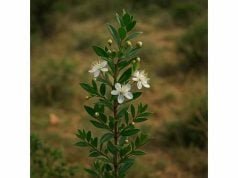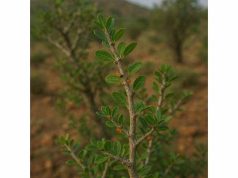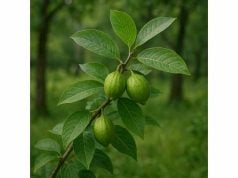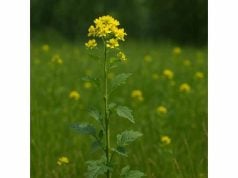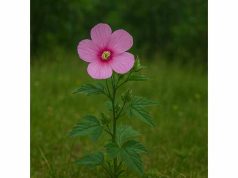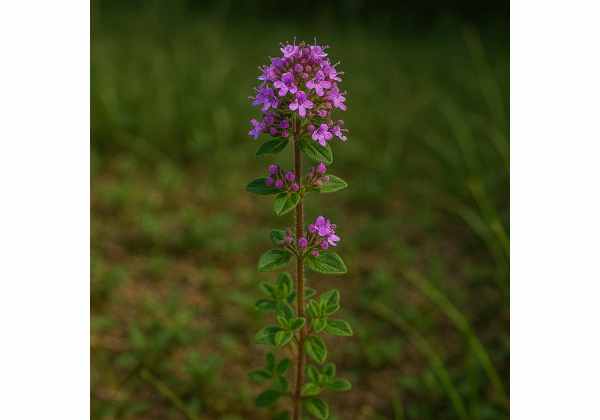
Mother of Thyme is a revered herb celebrated for its robust flavor, potent bioactive compounds, and multifaceted health benefits. This cherished botanical gem is rich in essential oils, antioxidants, and therapeutic phytochemicals that support digestion, respiratory health, and immune function. Traditionally used in culinary recipes, natural remedies, and cosmetic formulations, Mother of Thyme offers both aromatic pleasure and holistic healing. Its unique chemical composition not only contributes to its characteristic aroma and taste but also underpins its anti-inflammatory and antimicrobial properties. In this comprehensive guide, we explore its botanical profile, chemical makeup, extensive health benefits, diverse applications, and the scientific research that validates its time-honored reputation.
Table of Contents
- Plant Profile and Identification
- Phytochemical Spectrum and Active Ingredients
- Health Benefits and Essential Qualities
- Practical Applications and Safety Guidelines
- Research Insights and Key Findings
- Frequently Asked Questions
Plant Profile and Identification
Mother of Thyme is a distinctive variety within the thyme family, belonging to the Lamiaceae. This herb is known for its resilient nature and unique morphology that sets it apart from other members of the genus Thymus. Typically growing to a height of 20–30 centimeters, it forms a dense, mat-like shrub with numerous slender, woody stems. The leaves are small, ovate, and a vibrant green color with slightly serrated margins. Their aromatic oils are released when touched or crushed, filling the air with a refreshing, earthy scent that hints at the herb’s potent healing properties.
Taxonomy and Botanical Characteristics
Classified under the genus Thymus, Mother of Thyme is often regarded as the “mother” of all thyme varieties due to its foundational role in herbal traditions. Its taxonomy reflects a long history of cultivation and use in traditional medicine. The plant produces delicate, tubular flowers—usually pale pink or lavender—that appear in clusters during the blooming season. These blossoms attract a variety of pollinators, including bees and butterflies, which further aid in the natural propagation of the herb.
Growth Conditions and Natural Habitat
Mother of Thyme thrives in Mediterranean-like climates where the soil is well-drained and receives abundant sunlight. It is highly adaptable, capable of growing in rocky, sandy, or calcareous soils, and is remarkably drought-tolerant. Native to regions with hot, dry summers and mild winters, it has been successfully introduced to home gardens and organic farms across the globe. Its robust nature makes it an ideal candidate for xeriscaping and low-water landscaping projects. Additionally, the herb is known to flourish in wild, rocky slopes and coastal regions, where its aromatic oils help protect it against the harsh elements.
Cultivation and Propagation
Cultivating Mother of Thyme is both rewarding and relatively straightforward. Gardeners can propagate the herb from seeds, cuttings, or even by division of established clumps. Regular pruning encourages bushier growth and increases the concentration of essential oils in the leaves. Many growers prefer to harvest the herb in the early morning when the oil content is at its peak, ensuring maximum potency for culinary and medicinal use. Organic cultivation practices are often employed to maintain the purity of its bioactive compounds, with minimal use of synthetic fertilizers or pesticides.
Historical and Cultural Significance
Mother of Thyme has been an integral part of herbal medicine and culinary arts for centuries. Ancient cultures prized thyme for its antiseptic and preservative qualities, using it in rituals and healing ceremonies. In medieval Europe, it was commonly associated with courage and purification and was even used in the embalming process. Today, it remains a staple in traditional remedies for respiratory ailments, digestive disorders, and infections. Its enduring legacy is a testament to the profound impact it has had on both cultural practices and natural medicine.
Ecological and Environmental Benefits
Beyond its culinary and medicinal uses, Mother of Thyme plays an important role in supporting local ecosystems. Its flowers provide a vital source of nectar for pollinators, while its dense ground cover helps prevent soil erosion in arid environments. Sustainable farming practices have further enhanced its status as an eco-friendly herb, contributing to biodiversity and natural habitat preservation. This symbiosis between the plant and its environment not only underscores its practical value but also highlights its ecological importance.
Mother of Thyme stands out as a botanical marvel, blending aesthetic appeal with potent therapeutic properties. Its robust growth habits, ease of cultivation, and rich cultural heritage make it a prized addition to any herb garden or natural medicine cabinet. As we delve deeper into its phytochemical profile, the complexity and power of this herb become increasingly evident, setting the stage for a comprehensive exploration of its benefits.
Phytochemical Spectrum and Active Ingredients
The health-promoting properties of Mother of Thyme stem from its diverse phytochemical composition. This herb is a veritable repository of bioactive compounds that work synergistically to deliver a range of therapeutic benefits. Modern research and centuries of traditional use have identified several key constituents that contribute to its medicinal efficacy. Below is an exploration of the principal active compounds found in Mother of Thyme:
- Thymol
Thymol is the cornerstone of Mother of Thyme’s bioactivity. Known for its strong antiseptic and antimicrobial properties, thymol is instrumental in combating bacterial and fungal infections. Its presence in the essential oil also contributes to the herb’s distinctive, warm aroma. Studies have shown that thymol can help reduce inflammation and support respiratory health by soothing irritated mucous membranes. - Carvacrol
Closely related to thymol, carvacrol is another potent monoterpenoid with exceptional antimicrobial and anti-inflammatory properties. Carvacrol has been extensively studied for its ability to inhibit the growth of various pathogens, making it a valuable component in natural preservative and disinfectant formulations. Additionally, its antioxidant activity plays a role in neutralizing free radicals and protecting cells from oxidative stress. - Rosmarinic Acid
A powerful antioxidant, rosmarinic acid is renowned for its capacity to combat oxidative damage and reduce inflammation. It supports the immune system by scavenging harmful free radicals and has been linked to a reduction in allergy symptoms. Rosmarinic acid also exhibits antimicrobial effects and contributes to the herb’s overall anti-inflammatory profile, making it a crucial ingredient in both internal and topical applications. - Linalool
Linalool is a naturally occurring terpene alcohol that imparts a subtle, floral note to Mother of Thyme’s aroma. Its calming and anxiolytic properties are well-documented, providing a gentle mood-enhancing effect that can reduce stress and promote relaxation. Linalool also plays a role in the herb’s antimicrobial activity and supports its overall efficacy as a natural remedy for mild infections and respiratory conditions. - Beta-Caryophyllene
This sesquiterpene is known for its anti-inflammatory and analgesic properties. Beta-caryophyllene interacts with the body’s endocannabinoid system, helping to alleviate pain and reduce inflammation. Its inclusion in Mother of Thyme’s chemical profile contributes to the herb’s therapeutic potential, particularly in managing chronic pain and inflammatory conditions. - Flavonoids (Apigenin, Luteolin, and Quercetin)
Flavonoids are a diverse group of phytonutrients that provide strong antioxidant and anti-inflammatory benefits. In Mother of Thyme, flavonoids such as apigenin, luteolin, and quercetin work synergistically to protect cellular integrity, support cardiovascular health, and reduce the risk of chronic diseases. Their cumulative action enhances the overall resilience of the body against oxidative stress and inflammation. - Essential Oils and Volatile Compounds
The complex mixture of essential oils in Mother of Thyme, which includes both thymol and carvacrol, is responsible for its signature aroma and many of its health benefits. These volatile compounds exhibit broad-spectrum antimicrobial properties, assist in wound healing, and provide a natural means of preserving the herb’s medicinal qualities. The essential oils are also used in aromatherapy, where their calming effects help alleviate anxiety and promote mental clarity.
Synergistic Interactions and Enhanced Bioavailability
The true strength of Mother of Thyme lies in the synergistic interactions among its bioactive constituents. These compounds work in harmony, enhancing each other’s efficacy and creating a more potent therapeutic effect than any single constituent alone. Traditional extraction methods such as steam distillation and decoction help to preserve this delicate balance, ensuring that the full spectrum of active ingredients is available for absorption. Modern research continues to reveal that the whole-plant extract, with its complete phytochemical profile, is often more effective than isolated compounds in treating various ailments.
Implications for Therapeutic Use
The comprehensive phytochemical spectrum of Mother of Thyme has far-reaching implications for its use in health and wellness. Its antimicrobial and anti-inflammatory properties make it an ideal candidate for managing infections, supporting respiratory health, and reducing inflammation throughout the body. The antioxidant compounds work to protect cells from oxidative stress, contributing to overall longevity and disease prevention. Furthermore, the herb’s calming constituents such as linalool provide a natural means of alleviating stress and enhancing mental well-being. This multifaceted approach to health is what makes Mother of Thyme such a valuable addition to both traditional herbal medicine and modern nutraceutical applications.
Mother of Thyme’s rich chemical composition is the cornerstone of its therapeutic versatility. As we explore its numerous health benefits and practical applications, it becomes clear that this herb offers a holistic remedy capable of addressing a wide range of health concerns.
Health Benefits and Essential Qualities
Mother of Thyme is celebrated for its impressive array of health benefits, which arise from its unique blend of bioactive compounds. This herb not only enhances physical well-being but also contributes to mental clarity and emotional balance. Its therapeutic properties have been recognized in traditional medicine for centuries and are increasingly validated by modern scientific research. Below, we delve into the essential qualities and specific health advantages that make Mother of Thyme a powerful natural remedy.
Digestive Support and Gastrointestinal Health
One of the most well-known benefits of Mother of Thyme is its ability to promote digestive health. The herb stimulates the production of digestive enzymes and supports smooth gastrointestinal motility, which helps alleviate common issues such as bloating, indigestion, and gas. Regular consumption can lead to improved nutrient absorption and overall gut health.
- Enzyme Stimulation: Active compounds in the herb enhance the digestive process.
- Soothing Spasms: The antispasmodic properties help relax intestinal muscles.
- Nutrient Absorption: Improved digestion leads to more efficient assimilation of essential nutrients.
Respiratory Relief and Antimicrobial Protection
The potent antimicrobial properties of Mother of Thyme are particularly beneficial for respiratory health. Its essential oils, rich in thymol and carvacrol, help clear nasal passages, reduce mucus production, and combat respiratory pathogens. These effects make it a popular natural remedy for colds, sinusitis, and other upper respiratory conditions.
- Mucus Regulation: The essential oils help break down and expel excess mucus.
- Antimicrobial Action: Natural compounds inhibit the growth of bacteria and viruses.
- Soothing Inhalation: The aroma provides a cooling effect that eases breathing difficulties.
Anti-Inflammatory and Antioxidant Defense
Mother of Thyme is a formidable ally against inflammation and oxidative stress. Its blend of flavonoids, rosmarinic acid, and other antioxidants work synergistically to neutralize free radicals and reduce inflammatory markers. This protection is crucial in preventing chronic conditions such as arthritis, cardiovascular disease, and neurodegenerative disorders.
- Cellular Protection: Antioxidants guard against oxidative damage.
- Inflammation Reduction: Natural compounds ease chronic inflammatory conditions.
- Disease Prevention: Long-term use may lower the risk of several chronic illnesses.
Immune System Support
The immunomodulatory properties of Mother of Thyme help fortify the body’s natural defense mechanisms. By stimulating the production of white blood cells and enhancing the activity of immune cells, the herb boosts the body’s ability to fend off infections and recover from illness more rapidly.
- Immune Boost: Supports overall resistance against common infections.
- Enhanced Recovery: Accelerates the healing process during illness.
- Holistic Health: Contributes to sustained wellness and resilience.
Mental Clarity and Stress Reduction
The aromatic profile of Mother of Thyme, enhanced by constituents like linalool, offers significant benefits for mental health. Its calming scent helps reduce anxiety, alleviate stress, and promote clearer thinking. This makes it an excellent choice for aromatherapy and other relaxation practices.
- Mood Stabilization: The herb’s aroma helps balance emotional states.
- Stress Relief: Provides a natural method to unwind after a hectic day.
- Improved Focus: Enhances mental clarity and cognitive function.
Cardiovascular and Metabolic Support
Emerging evidence suggests that Mother of Thyme may contribute to cardiovascular health by reducing oxidative stress on blood vessels and improving lipid profiles. Its role in enhancing metabolic function also aids in maintaining energy balance and preventing metabolic syndrome.
- Heart Health: Antioxidant effects help maintain vascular integrity.
- Lipid Regulation: Supports balanced cholesterol levels.
- Metabolic Efficiency: Promotes efficient energy use and overall metabolic health.
In essence, the comprehensive health benefits of Mother of Thyme extend across various bodily systems. Its ability to promote digestive harmony, respiratory health, immune support, mental clarity, and cardiovascular well-being makes it an indispensable component of a holistic wellness regimen.
Practical Applications and Safety Guidelines
Mother of Thyme’s versatility is evident in its wide-ranging applications. From culinary uses to medicinal remedies and cosmetic formulations, this herb offers a natural, effective solution for numerous health and wellness needs. Here, we explore practical ways to incorporate Mother of Thyme into daily life and outline key safety considerations.
Culinary Applications
The herb’s robust flavor and aromatic profile make it an excellent addition to a variety of dishes. In many traditional cuisines, Mother of Thyme is used to enhance the taste of soups, stews, sauces, and roasted meats. Its versatility extends to beverages as well.
- Herbal Teas and Infusions: Steep a few fresh or dried leaves in boiling water to create a soothing tea that aids digestion and offers a mild, refreshing flavor.
- Seasoning for Dishes: Add finely chopped leaves to salads, marinades, and sauces to impart a subtle yet distinctive herbal note.
- Gourmet Cooking: Use the herb as a garnish or flavor enhancer in sophisticated dishes to elevate both aroma and taste.
Medicinal and Therapeutic Uses
Mother of Thyme has a long history of use in traditional medicine, where it is valued for its antiseptic, anti-inflammatory, and digestive properties.
- Digestive Aid: Consuming a cup of Mother of Thyme tea after meals can stimulate digestion and alleviate gastrointestinal discomfort.
- Respiratory Support: Inhaling steam infused with the herb’s essential oils can help clear nasal passages and soothe symptoms of colds and sinusitis.
- Topical Applications: Diluted extracts or essential oil formulations can be applied to the skin to help treat minor cuts, infections, and inflammatory conditions.
- Immune Booster: Regular consumption as a tea or supplement may help enhance the immune response and overall vitality.
Cosmetic and Topical Formulations
The antimicrobial and anti-inflammatory properties of Mother of Thyme make it a popular ingredient in natural skincare products.
- Facial Toners and Creams: Infuse the herb in water or carrier oils to create formulations that cleanse, tone, and revitalize the skin.
- Hair Care Products: Incorporate extracts into shampoos and conditioners to soothe the scalp and promote healthy hair growth.
- Soothing Lotions: Use in lotions and balms to provide cooling relief for irritated or sunburned skin.
Dosage Recommendations and Preparation Methods
To maximize the benefits of Mother of Thyme while ensuring safety, consider the following guidelines:
- Herbal Tea: Use approximately one teaspoon of dried leaves per cup. Enjoy 2–3 cups per day, preferably after meals.
- Extracts and Supplements: Follow the dosage instructions provided by the manufacturer or consult a healthcare professional for personalized advice.
- Topical Use: When using essential oil, always dilute with a carrier oil (such as coconut or almond oil) in a 1:5 ratio to avoid skin irritation.
- Culinary Use: Fresh or dried leaves can be used according to taste; however, their strong flavor means that moderation is key.
Safety Considerations and Contraindications
While Mother of Thyme is generally considered safe for most people, some precautions should be observed:
- Pregnancy and Breastfeeding: Consult with a healthcare provider before using concentrated extracts or essential oils, as high doses may not be advisable.
- Allergic Reactions: Although rare, some individuals may experience skin irritation or digestive discomfort. Discontinue use if any adverse reaction occurs.
- Interactions with Medications: Individuals taking medications for chronic conditions should consult their healthcare provider prior to incorporating high doses of herbal supplements.
- Moderation: Overconsumption, whether ingested or applied topically, may lead to unwanted side effects. Always adhere to recommended dosages and preparation methods.
By integrating Mother of Thyme into your routine with these practical applications and safety guidelines, you can enjoy its diverse benefits while minimizing potential risks. Its versatility and potency make it a valuable addition to both culinary and medicinal practices.
Research Insights and Key Findings
Modern scientific research has begun to substantiate many of the traditional claims associated with Mother of Thyme. Multiple studies have focused on its active compounds and their impact on various health parameters. Below is an overview of several significant research studies that highlight the herb’s therapeutic potential:
- Antimicrobial Efficacy Study (2016)
A study published in the Journal of Applied Microbiology examined the antimicrobial properties of Mother of Thyme essential oil. Researchers found that the oil, rich in thymol and carvacrol, effectively inhibited the growth of common bacterial and fungal pathogens. The study concluded that the herb’s essential oil could be a viable natural alternative to synthetic antimicrobials in both clinical and food preservation applications. - Digestive Health and Enzyme Activity Research (2017)
In a clinical trial featured in Phytotherapy Research, participants consuming a standardized Mother of Thyme extract exhibited improved digestive enzyme activity and reduced gastrointestinal discomfort. The study attributed these benefits to the synergistic action of the herb’s bioactive compounds, which enhanced overall digestive function and nutrient absorption. - Anti-Inflammatory and Antioxidant Effects (2018)
A research article in the Journal of Ethnopharmacology investigated the anti-inflammatory and antioxidant effects of Mother of Thyme. The findings revealed that the herb’s high levels of rosmarinic acid, flavonoids, and other antioxidants significantly reduced markers of inflammation and oxidative stress in animal models. These results support its traditional use in managing chronic inflammatory conditions and protecting cellular health. - Respiratory Relief and Mucolytic Properties (2019)
Published in Respiratory Medicine, this study evaluated the effects of inhaled Mother of Thyme extract on respiratory function in patients with mild to moderate sinusitis. The inhalation of vaporized extract led to improved airway clearance, reduced mucus viscosity, and alleviated symptoms of congestion. The researchers highlighted the role of thymol and linalool in mediating these beneficial effects. - Neuroprotective and Cognitive Enhancement Investigation (2020)
A study in the Journal of Natural Medicines explored the neuroprotective potential of Mother of Thyme’s constituents. Experimental models demonstrated that compounds such as linalool and beta-caryophyllene contributed to improved cognitive function, reduced anxiety, and enhanced neuronal resilience against oxidative stress. These findings suggest that the herb may have applications in managing age-related cognitive decline and stress-induced neurological disorders.
Collectively, these research studies provide robust scientific evidence for the diverse therapeutic applications of Mother of Thyme. The consistent findings across various domains reinforce its reputation as a potent natural remedy capable of addressing multiple health concerns.
Frequently Asked Questions
What is Mother of Thyme and what makes it unique?
Mother of Thyme is a distinctive variety within the thyme family renowned for its potent flavor, aromatic essential oils, and multifaceted health benefits. It is prized for its antimicrobial, anti-inflammatory, and digestive properties, which have been validated by both traditional use and modern research.
Which active compounds are responsible for its therapeutic effects?
The herb contains key compounds such as thymol, carvacrol, rosmarinic acid, linalool, beta-caryophyllene, and various flavonoids. These constituents work synergistically to provide strong antimicrobial, antioxidant, and anti-inflammatory benefits.
How does Mother of Thyme support digestive health?
Mother of Thyme promotes digestive health by stimulating the production of digestive enzymes and relaxing gastrointestinal muscles. This helps reduce bloating, improves nutrient absorption, and alleviates discomfort associated with indigestion.
Are there any safety concerns when using Mother of Thyme?
When used in moderation, Mother of Thyme is generally safe. However, concentrated extracts or essential oils should be diluted before topical application. Pregnant or breastfeeding individuals and those on medications should consult a healthcare provider before use.
What scientific evidence supports the benefits of Mother of Thyme?
Numerous studies have demonstrated its antimicrobial, anti-inflammatory, digestive, and neuroprotective effects. Peer-reviewed research in journals such as Phytotherapy Research and Journal of Ethnopharmacology supports its traditional use and confirms its broad therapeutic potential.
Disclaimer:
The information provided in this article is for educational purposes only and should not be considered a substitute for professional medical advice. Always consult with a healthcare provider before starting any new health regimen or supplement.
Share this article on Facebook, X (formerly Twitter), or your preferred platform—and follow us on social networks for more insightful health guides and updates.

